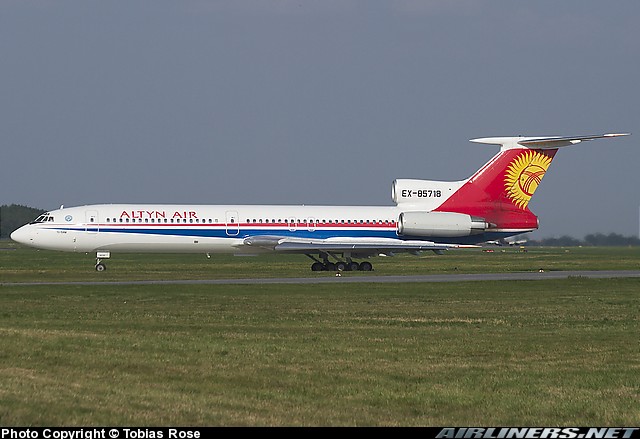
Will Flight Price Cuts Stimulate Development In Kyrgyzstan?
Publication: Eurasia Daily Monitor Volume: 8 Issue: 170
By:

On July 27, the Kyrgyz government issued a decree aimed at ensuring price cuts for domestic flights between the capital Bishkek in the north and Batken and Isfana towns in the south. Traveling this distance by road can take up to 24 hours, compared to the 90 minute flights. The government believes this measure will help to stimulate regional development in the country’s remote and poor areas, forming part of Central Asia’s notorious Ferghana Valley (www.gov.kg, July 27).
This issue highlights the challenges and opportunities facing Kyrgyzstan as it seeks to ensure integrated economic development and stronger statehood. Yet, similar to the news on the price cuts, the socio-economic problems facing southern Kyrgyzstan have either been largely ignored or poorly addressed. As a result, the country’s national cohesion, political stability, and economic vitality have been seriously undermined (www.gov.kg, July 27).
Comprising Batken, Osh, and Jalalabad provinces, the south faces more severe economic challenges than in its industrialized capital. Prevalent poverty and unemployment in the south cause massive internal migration to the capital, increasing pressure on the socio-economic conditions of the overcrowding city while leaving rural areas unattended and underutilized for wider development. This also compels people to move to Russia and Kazakhstan in search of jobs. Currently, up to 700,000 Kyrgyz citizens are believed to work in Russia alone. There are also thousands of Kyrgyz migrants working in Kazakhstan (https://www.unhcr.org/refworld/docid/4dd3cb81c.html, April 29).
Meanwhile, poor socio-economic conditions have fueled recruitment efforts by radical groups such as Hizb-ut-Tahrir or terrorist organizations –mainly the Islamic Movement of Uzbekistan (IMU), believed to be more active in the south. In 1999-2000, the IMU infiltrated the Batken region, but the Kyrgyz authorities thwarted the attacks with the help of its partners. The IMU, considered to be closely linked to al Qaeda and operating in Central and South Asia, has sought to depose the secular regimes of Central Asia and establish a caliphate in the region.
In June 2010, Kyrgyzstan suffered another crisis marked by clashes between Uzbeks and Kyrgyz erupting in the south (home to a sizable Uzbek minority) resulting in significant material damage and loss of life. The conflict took place within two months of the violent protests on April 7 that swept the Kyrgyz President, Kurmanbek Bakiyev, from power. The protests were in response to the regime’s abuses and inability to address poor socio-economic conditions that have long put Kyrgyz statehood at risk. Kyrgyz tribalism and weak state loyalties among ethnic minorities have further jeopardized national cohesion. The former has produced north-south tensions among the Kyrgyz clans seeking power and the general population, while the latter has complicated efforts to develop a modern nation-state (See EDM, June 14, 2010).
Regional and integrated economic development in Kyrgyzstan, while not a panacea for strong nationhood, is an important component in state building. However in Kyrgyzstan, this factor has been neglected for far too long. In this context, the government decree and anticipated price cuts for flights to and from remote areas in the country’s south could indicate a more concerted effort by the government to tackle the issue of unemployment, uneven economic development, and weak state loyalties among all citizens and ethnic groups. The flight price cuts alone will be insufficient to meet this challenge. The related decree is only valid until the end of 2011. The expected price cuts are modest, reportedly around 13 percent. Whether they will have a considerable impact on inter-regional business activity and demand from people interested in air travel for non-business purposes is also unclear. Moreover, even the reduced flight prices of $57 to $75 are only slightly below the average monthly salary of approximately $100 in the Batken region (www.minfin.kg, January 21; www.for.kg, August 3). Finally, the interim measure may have simply been enacted to win the support of some groups in light of the upcoming presidential elections in Kyrgyzstan in October.
Overall, the government may have found a good way to cut travel times, but the need remains to make air travel more affordable (particularly for less well-off citizens in the south) and improve road infrastructure and links connecting the north and south. And that need is great, especially considering the benefits of inter- rather than just regional development and the potential costs of any missed opportunities to strengthen the country’s nationhood in light of the upheaval that has affected its stability.




